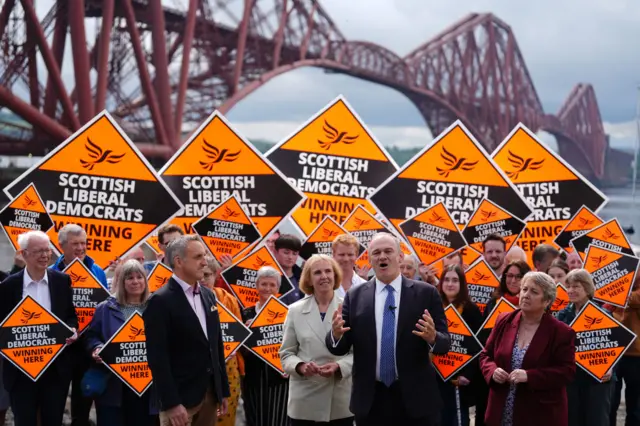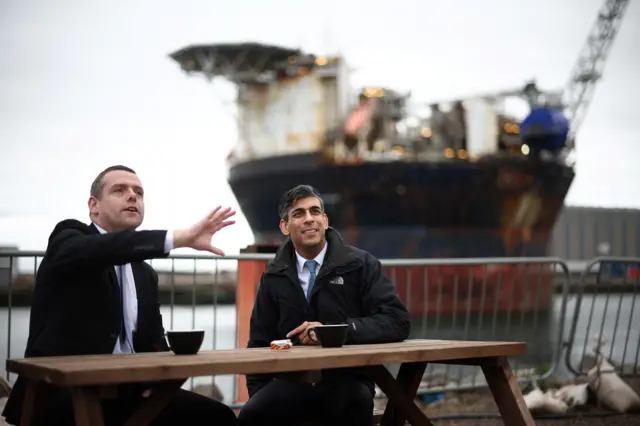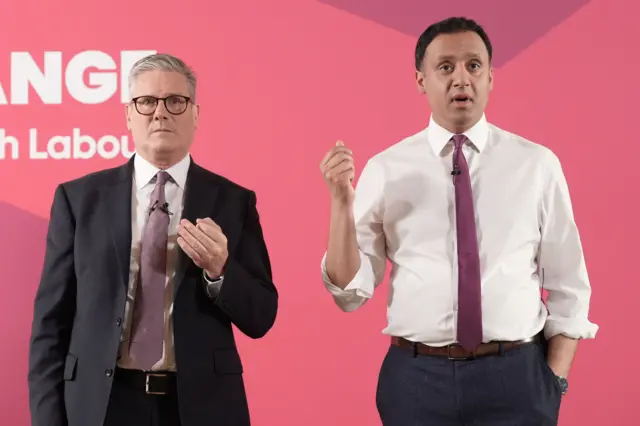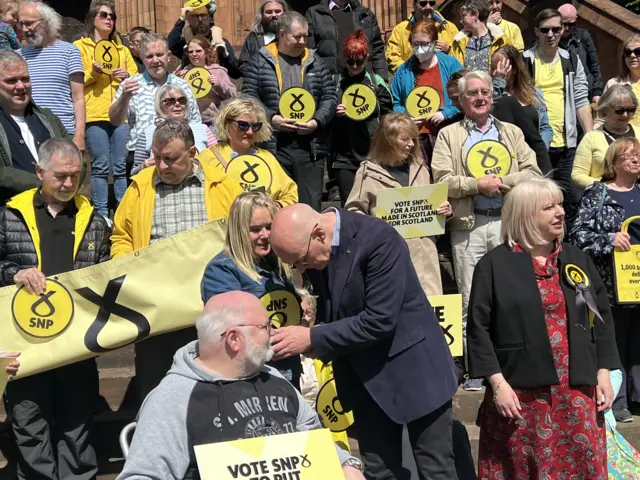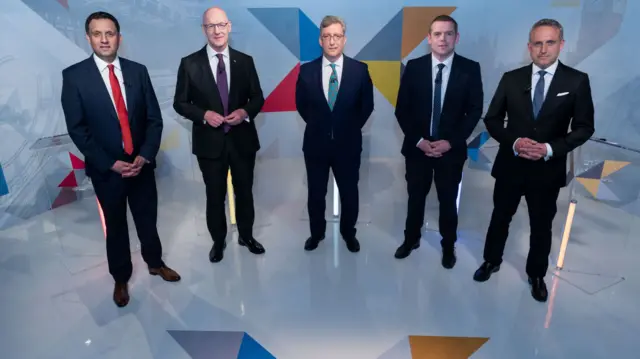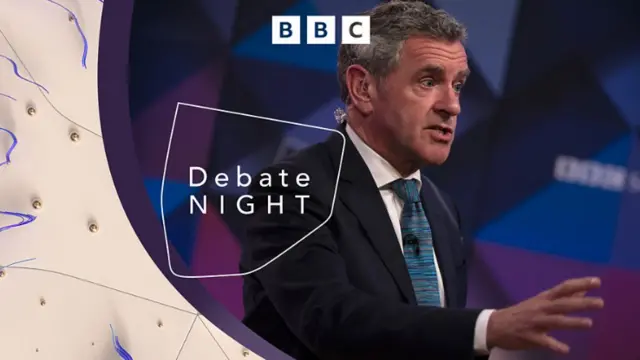What state are the Scottish Greens in?published at 19:58 BST 11 June 2024
 Philip Sim
Philip Sim
BBC Scotland political correspondent
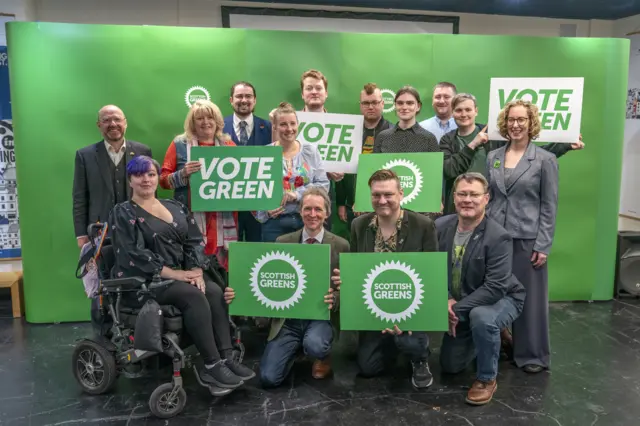 Image source, PA
Image source, PAScottish Green Party co-leaders Patrick Harvie (left) and Lorna Slater (right) during their campaign launch with election candidates and activists in Stirling
The Scottish Greens are in reasonably buoyant mood, for a party which has just been kicked out of government.
They had been very proud of the Bute House Agreement, signed with Nicola Sturgeon, which took them into power and made Patrick Harvie and Lorna Slater the first Green ministers in the UK.
The agreement was in part a consequence of the growing Green influence at Holyrood, with the party returning eight MSPs – one of whom became the parliament’s Presiding Officer – in 2021.
But it all fell apart after Humza Yousaf took over, with a series of policy reversals and disagreements over controversial topics culminating in the fall-out which ultimately cost the first minister his job.
The good news for the Green leaders he sacked from government is that an election is the perfect time to play up differences between political parties, and they have seized the opportunity to paint themselves as being more “progressive” than the SNP.
They are now standing a record 44 candidates in the election, a huge number when you consider they only stood three in the 2017 poll called at similarly short notice.
